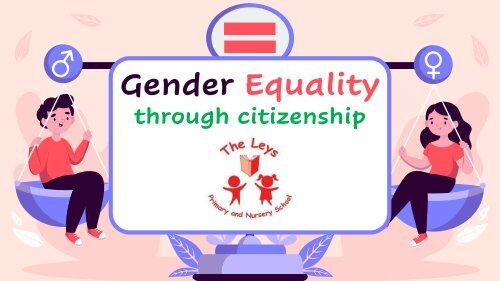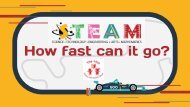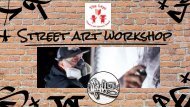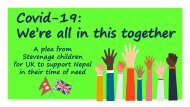Gender Equality showcase
You also want an ePaper? Increase the reach of your titles
YUMPU automatically turns print PDFs into web optimized ePapers that Google loves.
<strong>Gender</strong> <strong>Equality</strong><br />
through citizenship
The World Health Organisation<br />
describes gender as referring to ‘the<br />
socially constructed roles, behaviours,<br />
activities, and attributes that a given<br />
society considers appropriate for men<br />
and women.’<br />
Citizenship can be viewed as being<br />
about a feeling (identity), a status<br />
(rights) and a practice (taking action).
Year 6 children, explored how gender<br />
roles and expectations influence identity<br />
and rights. The hope being that this will<br />
inspire pupils to take action to question<br />
norms and dominant masculinities to<br />
bring about greater gender equality.<br />
This is linked to Sustainable Development<br />
Goal 5 which aims to achieve gender<br />
equality and empower all women & girls.
Over the past few years, The Leys Primary School has<br />
collaborated with students in Nepal and this current<br />
work on gender equality was prompted by learning<br />
about the Girls Empowerment and Mainstreaming<br />
Sustainability (GEMS) project. It is implemented by<br />
Aasaman Nepal and jointly funded by the British<br />
Council and UK Aid through VSO’s ACTIVE programme.<br />
The project aims to create lasting change by<br />
promoting inclusivity and equitable development in<br />
the country. It places a strong emphasis on advancing<br />
girls' education, enhancing healthcare accessibility,<br />
and empowering women and girls.
What do we already know<br />
about expectations around<br />
gender roles and identities and<br />
what do we feel about this?
Pupils in this lesson:<br />
• considered gender identities and roles<br />
• separated adjectives, jobs, domestic duties<br />
and childcare responsibilities into sets of<br />
men, women or both men and women<br />
• carried out sentence completion exercises,<br />
individually and in single sex groups, to<br />
consider how expectations around gender<br />
roles impact on their lives and those of<br />
their peers.
Adjectives<br />
Groups comprised of<br />
all girls felt all the<br />
adjectives provided<br />
could apply to both<br />
men and women.
For groups that were made up of both boys and girls or boys only,<br />
there were some adjectives that were felt to be gender specific.
Jobs<br />
All-girl groups<br />
believed the jobs<br />
provided could apply<br />
to both men and<br />
women equally.
2 out of 3 groups<br />
that were made up of<br />
both boys and girls or<br />
boys only, felt there<br />
were some jobs that<br />
were gender specific.
Domestic roles<br />
All of the girl groups plus<br />
1 out of 3 mixed groups,<br />
felt the domestic roles<br />
could apply to both men<br />
and women equally.
The one boy group plus<br />
2 out of 3 mixed groups,<br />
felt some of the<br />
domestic roles were<br />
gender specific.
Childcare<br />
This was the first<br />
category where an<br />
all-boys group felt<br />
that the different<br />
tasks could apply to<br />
both men and<br />
women equally.
Interestingly, this was also the first category where an<br />
all-girls group felt that some of the tasks were gender<br />
specific with the majority being assigned to women.
The last Venn Diagram was discussed as a whole class and the<br />
students came up with the following possible explanations:<br />
• Some dads work long hours so are not around to help with chores<br />
• Some children are cared for by a single parent<br />
which is often their mum<br />
• Mums know individual family preferences<br />
(e.g. food) better than dads do<br />
• People conform to historic stereotypes
<strong>Gender</strong> equality and empowerment
The students then sought to complete the following sentences:<br />
Dress: As a boy/girl I am expected to dress …………………..<br />
Sport: As a boy/girl I am expected to dress …………..<br />
Feeling sad: As a boy/girl when I am feeling sad I am expected to …..<br />
Some of their answers are shared on the next few pages.
The children them moved into single sex groups (with clear class<br />
ground rules set in terms of showing respect and understanding for<br />
each other’s opinions) to answer the following questions:<br />
What we never want to have said, thought, or done, to us or people<br />
in our group again.<br />
What we want the whole world to know about our group.
CREDITS: This presentation template was<br />
created by Slidesgo, and includes icons by<br />
Flaticon, and infographics and images by Freepik

















